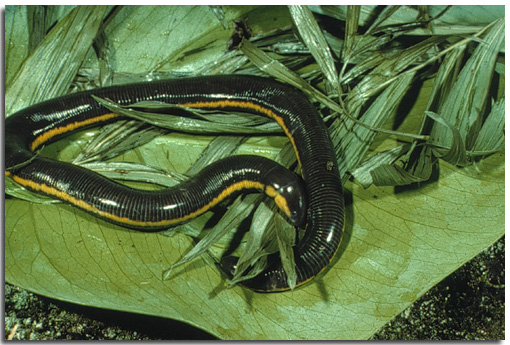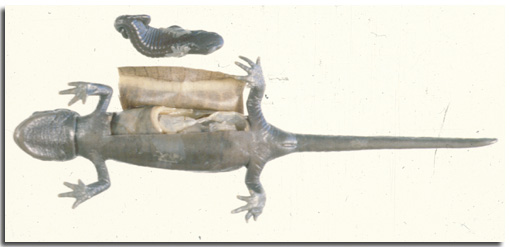
We are a laboratory for the study of evolutionary biology. Current research emphasizes two primary foci: morphology, development, and reproductive biology in vertebrates with the goal of understanding evolutionary patterns and processes, and the molecular and morphological systematics, phylogenetic relationships, and evolution of amphibians, particularly the members of the Order Gymnophiona, the caecilians. For the former, the comparative method is applied to ontogenetic and adult studies of various organ systems and their structure, function, and development, and their integration, in fishes, amphibians, and reptiles. For the alter, morphological and molecular systematics and various methods of análisis of the data are applied.
 We are particularly interested in examining patterns of early development and of the evolution of live-bearing modes of reproduction, especially in amphibians, in order to understand and assess homology and homoplasy. We employ a diversity of techniques, including immunohistochemistry, scanning electron microscopy, and many others, and we examine several clades of frogs, salamanders, and caecilians. For the systematic research, we are gathering data for whole mitochondrial genomes, a diversity of mitochondrial genes, and several nuclear markers, as well as increasing the morphological database by searching for new kinas of characters. These are being employed in systematics, phylogeographic and biogeographic assessments, and analyses of ancestral states and lineage origin and diversification. We also are accumulating and analyzing a large and diverse morphological dataset for caecilians and salamanders that will be considered both separately and amalgamated with the molecular dataset, and in the development of an ontology of the morphology of amphibians. Concomitantly, we are working to develop the application of the comparative method to issues of the understanding and preservation of biodiversity.
We are particularly interested in examining patterns of early development and of the evolution of live-bearing modes of reproduction, especially in amphibians, in order to understand and assess homology and homoplasy. We employ a diversity of techniques, including immunohistochemistry, scanning electron microscopy, and many others, and we examine several clades of frogs, salamanders, and caecilians. For the systematic research, we are gathering data for whole mitochondrial genomes, a diversity of mitochondrial genes, and several nuclear markers, as well as increasing the morphological database by searching for new kinas of characters. These are being employed in systematics, phylogeographic and biogeographic assessments, and analyses of ancestral states and lineage origin and diversification. We also are accumulating and analyzing a large and diverse morphological dataset for caecilians and salamanders that will be considered both separately and amalgamated with the molecular dataset, and in the development of an ontology of the morphology of amphibians. Concomitantly, we are working to develop the application of the comparative method to issues of the understanding and preservation of biodiversity.
Currently, several undergraduates and visiting scholars are working in the lab on a diversity of research projects.
Marvalee H Wake's Lab Group 2008. Not pictured: Jacob Chi, Binh Nguyen, Terry Singhapricha and Betty Lai.
.